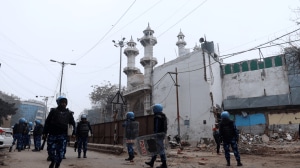The Summer of 8217;99
General Tony Zinni was the commander of the US Central Command from 1997 to 2000 with jurisdiction over the huge area to the west of us incl...

General Tony Zinni was the commander of the US Central Command from 1997 to 2000 with jurisdiction over the huge area to the west of us including Pakistan. Already friendly with General Musharraf, he was sent on a special presidential mission to Pakistan on June 24-25, 1999, at the peak of Pakistan8217;s war in the Kargil sector to convince Prime Minister Nawaz Sharif and him to withdraw their army from across the Line of Control.
Zinni8217;s account of the events is generally similar to others already in the public domain, like those of Bill Clinton, Sharif and White House official Bruce Reidel. Except that he makes it far more explicit that Musharraf 8220;encouraged Prime Minister Sharif8221; to listen to Zinni and order the withdrawal of forces. But what is worth noting, for an outspoken general like Zinni, is his emphasis on the need 8220;to come up with a face-saving way8221; for Pakistan to extricate itself from 8220;the mess8221; created by its military aggression.
In the process he seems to have had little concern for the victim of this unprovoked aggression. This should help us to better understand the continuing American mindset biased heavily in favour of Pakistan and its military, especially in the Pentagon. This is visible even elsewhere. Take, for example, his account of the massacre triggered by Pakistani troops in Mogadishu Somalia on June 5, 1993, where Zinni seems to have been more concerned by Pakistani casualties 24 dead compared to an estimated 10,000 Somalis two-thirds of them women and children.
But we also must admire his forthrightness. As a successful top military commander with extensive experience of wars, peace and peace-enforcement, he is firm in his view that 8220;if you make a political mistake, the troops have to pay for it with their blood8221; and far too many commanders 8220;fail in their obligations to speak the truth8221; and subordinates learn 8220;following the party line is the course to high rank8221;.
The most valuable part of his biography that our defence establishment, foreign policy practitioners and the security community need to look at closely is his assessment of the functioning of the US higher defence organisation and politico-military decision-making, especially the Joint Chiefs of Staff system that we admire so much. According to Zinni, the Joint Chiefs are simply the Service Chiefs 8220;wearing another hat now and again during the week8221; and running their own services with tensions of a zero-sum game where the rising powers of the Commanders-in-Chief reduce the power of the Service Chiefs. He is concerned with the 8220;bickering and rivalries8221; of services, military commanders not being able to control their own resources, the tremendous void in diplomatic connections, 8220;an inevitable military-civilian rift8221; and so on.
On the positive side, he commends a system and leadership where H.R. McMaster, who as a young major, wrote the book Dereliction of Duty detailing the failures of the Joint Chiefs to speak out during the Vietnam War, is invited in 1998 to address all four-star generals of the US military by the Chairman Joint Chiefs of Staff, General Hugh Shelton, once again emphasising that 8220;moral courage is often more difficult than physical courage.8221;
- 01
- 02
- 03
- 04
- 05































